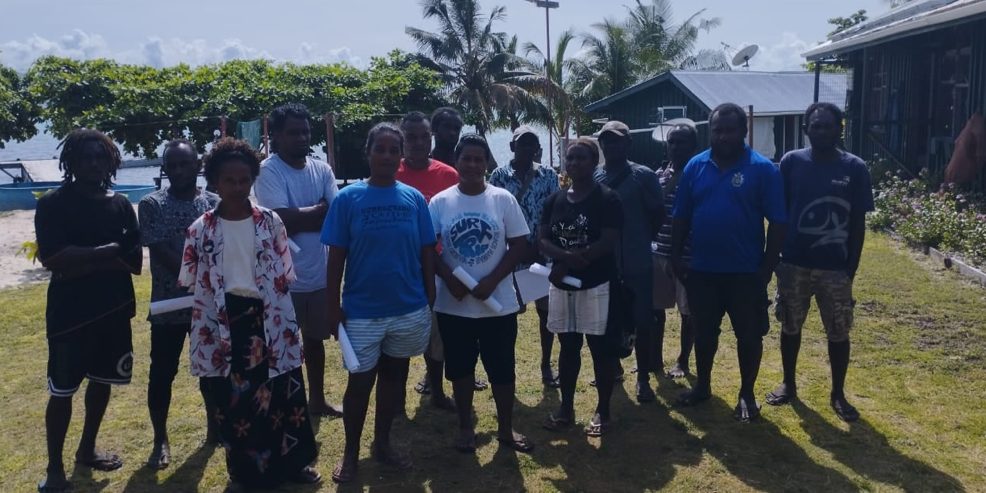A COMPREHENSIVE workshop focused on seaweed farming was successfully conducted at the WorldFish Nusatupe Innovation Hub in Gizo, Western Province.
The training was aimed at enhancing the knowledge and skills of local participants from Gizo and nearby islands.
Watch video slide below for more photos.
The initiative, organized in collaboration with the Western Provincial Government’s (WPG) Fisheries Department, targeted ten participants to promote sustainable seaweed harvesting practices and improve community livelihoods.
During the workshop, the participants learned about the seaweed ecosystem, the nutritional value of seaweeds and the economic benefits.
The training provided hands-on experience on the use of tools and materials required for seaweed farming and taught proper techniques for preparing and managing farming systems.
The participants engaged in the entire process of seaweed farming – from planting to packaging.
The workshop fostered collaboration among participants through knowledge sharing and the establishment of ongoing support networks for future initiatives.
Emphasis was placed on sustainable harvesting and cultivation practices that protect marine environments and enhance productivity.
Led by Senior Fisheries Officer Simeon Baeto, Fisheries Officer Andrew Bana and local seaweed farmer Lamukera from Rarurmana, the workshop attracted 13 participants.
The participants expressed satisfaction with the training and stated that it was their first exposure to formal education in seaweed farming.
They said they felt empowered to start her own seaweed farms and assist others in her community.
In an interview with Solomon Star last Friday, Hub Leader Dr Gregory Bennett hailed the collaborative efforts of the Western Province Government and the WorldFish Innovation Hub in supporting community initiatives.
He highlighted the hub’s role as a center for learning and the importance of collective action in advancing local sustainability efforts.
Mr Bennett said this came after the successful trialling of the cultivation of seaweed at the Nusatupe Innovation Hub.
He said the training was organized by WorldFish in collaboration with the Western Provincial Fisheries.
“Seaweed serves as a vital part of the island’s food systems and is currently tested as fertilizer and manure. This training demonstrates the power of collaboration and sustainable practices in enhancing food security,” Mr Bennett said.
He said with this new knowledge and learning, participants can share their skills with their friends and families in their communities.
Dr Bennett also acknowledged WorldFish for providing funding and a suitable venue for the workshop.
“The workshop represented a significant advancement in promoting sustainable seaweed farming practices among community members,” he said.
The participants included a female who recently graduated with a Diploma in Fisheries Studies from the Solomon Islands National University (SINU).
As part of this initiative, WorldFish provided each participant with five 10-meter ropes and seaweed broodstock to kickstart their farming efforts.
The Fisheries Department plans to follow up with additional support to ensure the success of these seaweed farming initiatives.
Future efforts will focus on reinforcing these skills and expanding community engagement in seaweed aquaculture.
By ULUTAH GINA
Solomon Star, Gizo









